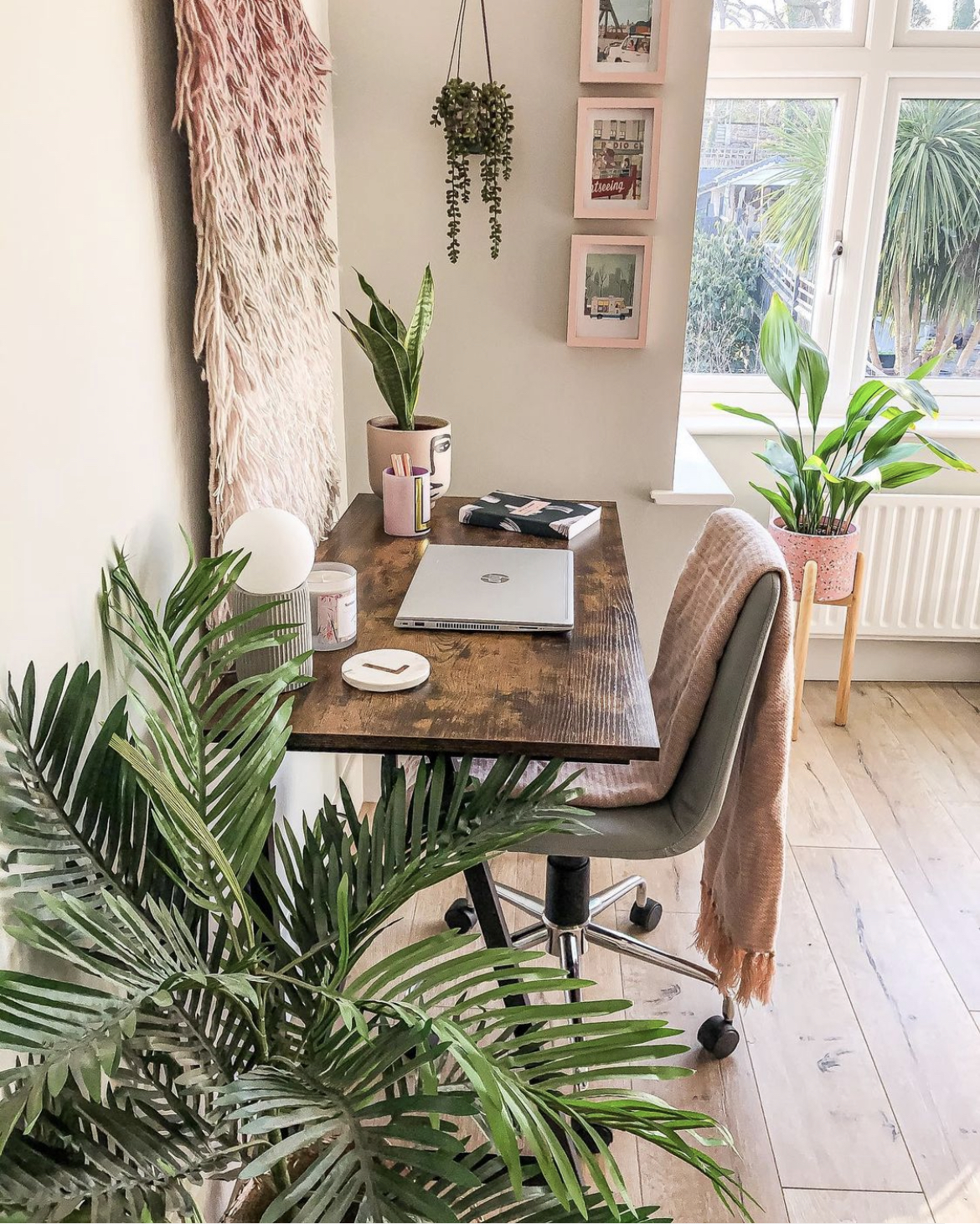
Over the last few years more of us are either working or studying at home. I have a hybrid working pattern where I need to spend 5 days a month in the office and the rest I can be at home if I want to. This makes it necessary to organise a study space or work space suitable for different purposes. Here are some best practice tips to help provide the best opportunity to achieve work and study goals.
Choose The Right Place
Begin with a designated area. Choose a room or a corner that you think may work best for studying or working. It should hopefully be somewhere with a table and comfortable chair whether that’s a home office, dining table or kitchen counter. Try to avoid working from bed or on a sofa unless it’s unavoidable as this won’t provide the best working environment. Students have even identified that in the past: ‘I used to pay someone to write my paper and do other homework assignments. But now as I have a separate place to study, it encourages me to do the work on my own.
The Working Environment
Before we focus on organising the study table, it’s a good idea to think about the bigger picture first.
- Light is very important, both natural and artificial to make sure your eyes aren’t straining whilst working. Natural lighting can also be more motivating but isn’t always easy to come by.
- Colours also have a significant impact. Avoid dark or too-bright colours. Pastel tones won’t act as too much of a distraction and will help to stimulate efficiency.
- Don’t forget about air quality. Place a plant to act as an air purifier or add an electronic one. Ideally when it’s not too cold and if there’s access, keep a window open for a bit of natural air flow.
- The temperatures should be balanced. Either too hot or too cold will cause the body to shut down and not work in the most efficient way.
Get Equipped
The study table organisation includes getting equipped properly for the day ahead. Do you need a notebook and a pen? I sometimes have to complete a financial process which requires a card and card processor so it’s important I know which days I’ll need to use it. Also, you might want to prioritize your comfort especially when you do a lot of writing or you spend a lot of hours in front of your laptop. You can get a customized desk mat to add a little bit of aesthetic to your work-study space. But in general, I prefer as much as possible to make sure I only have on my desk what I need to avoid getting distracted.
Keep Necessities At Hand
Aside from my laptop, an essential is very much a cup of tea. I try to keep the actual work area more clear, placing non-essential items on shelves or a nearby surface. Everything that I know I will need to regularly use is nearby however, so I can keep my work focus and not needing to keep looking for something else. This is one of the main principles of efficient study organisation.
Reduce Distraction
I am SO easily distracted (and I think that’s probably true of quite a few of us). Distractions lower our productivity and stop us achieving our goals. To combat them, start with muting or turning off other devices. I can only listen to certain type of music whilst working, otherwise I find myself singing and chair-dancing along. Put away game consoles or books and magazines that you might be tempted to take a look at. Commit to study table organisation so that you have everything in one place. Don’t be tempted to eat where you work unless absolutely necessary, it’s much better to keep the two activities separate.
Avoid Cluttering
I’m a “tidy home, tidy mind” kind of person and clutter is probably my biggest bug-bear. Why are things piling up? Piling books and notebooks, mixing different study materials together, and leaving food leftovers around will do no good to the study and work process. Clutter on the table is the last thing anyone needs for efficient performance. The more organised you are, the faster you will be able to get through the work.
Clean Up Regularly
I feel like I’m forever clearing up after my husband in the office, because no matter how organized we may be, dirt can quickly build up. We spend more time at our home work spaces now, especially snacking and drinking but that isn’t always terribly productive. A clean study space is better for health, time, and energy and keeps the study process optimised.
Care About Inspiration
There’s a lot to be said about being inspired by our surroundings. For some people that may be inviting nature into our homes, or using colours which reflect calm and peace. Others may use vibrant colours, or find motivational quotes empowering and inspiring. Creating mood boards can also help. Visualise your plans and mark your progress. This will allow you to be the most productive at your designated study place.
A properly organised space is half of the success of the studying or working process. Last year I gave our home office a makeover, taking out two smaller desks and replacing them with one larger one and a proper chair. It is less cluttered, more comfortable and more inspiring. It is easier to keep clean and well-organised (at least it would be without my husband to mess things up) and becomes an enjoyable space to spend time.
Post in collaboration.
Great post! I completely agree that having a well-organized study space is crucial for productivity. I’m curious, what would you say has been the most impactful change you made to your own study space in terms of increasing efficiency?
MR. W
http://www.primarytinting.net